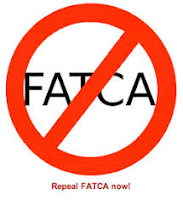According to researchers and former government auditors, budget cuts within the Internal Revenue Service (IRS), which have cut enforcement staff by a third, may be responsible for the drop in the number of tax evasion cases pursued in recent years.
In 2017, 795 cases were brought be the IRS’ criminal division, representing a drop of almost a quarter since 2010.
Audits and criminal referrals are down sharply, since Congress cut the tax agency’s budget and management changed priorities. The answer, researchers and former government auditors say, is simple. The IRS pursues fewer cases of tax evasion than it did less than 10 years ago.
In 2017, the IRS’s criminal division brought 795 cases in which tax fraud was the primary crime, a decline of almost a quarter since 2010. “That is a startling number,” Don Fort, the chief of criminal investigations for the IRS, acknowledged at an NYU tax conference in June 2018.
Bringing cases against people who evade taxes on legal income is central to the revenue service’s mission. In addition to recouping lost revenue, such cases are supposed “to influence taxpayer behavior for the hundreds of millions of American citizens filing tax returns,” Fort said. With fewer cases, experts fear, Americans will get the message that it’s all right to break the law.
 Starting in 2011, Republicans in Congress repeatedly cut the IRS’s budget, forcing the agency to reduce its enforcement staff by a 1/3.
Starting in 2011, Republicans in Congress repeatedly cut the IRS’s budget, forcing the agency to reduce its enforcement staff by a 1/3.
The result is huge losses for the government. Business owners don’t pay $125 billion in taxes each year that they owe, according to IRS estimates. That’s enough to finance the departments of State, Energy and Homeland Security, with NASA tossed in for good measure. Unlike wage earners who have their income separately reported to the IRS, business owners are often on the honor system.
The IRS declined to comment on its enforcement efforts.
Criminal referrals were always rare and are becoming rarer still, dropping from 589 referrals in 2012 to 328 in 2016. With the government conducting 1.2 million audits in 2016, that’s one criminal referral for roughly every 3,600 audits.
In recent years, the IRS has also been pulled away from classic tax dodging cases by soaring rates of identity theft. IRS management assigned scores of agents to chase perpetrators who used stolen identities to collect tax refunds.
The IRS allowed Americans with foreign accounts to voluntarily disclose them and pay a smaller penalty than they would have had they been caught hiding the information. Some 56,000 people participated, netting the government $11.1 billion. The IRS’s criminal division also brought several cases against people for concealing accounts.
For all this success, there has been little change in the amount of wealth stashed overseas. Americans have about $1.2 trillion of personal assets in tax havens, according to data compiled by Gabriel Zucman, an assistant professor of economics at the University of California, Berkeley, and two colleagues. It’s unclear what portion has been disclosed to the IRS.
Moreover, the IRS has made little use of new weapons in the fight against wealth hidden overseas. In 2010, President Barack Obama signed a law that was supposed to provide a crucial tool for government auditors and prosecutors. That law, the Foreign Account Tax Compliance Act, required banks with American account holders to report information to the United States. Like employers filing W-2 forms about their workers, these reports would force account holders to come clean.
Eight years later, the program is still getting off the ground. Countries around the world have signed agreements, and more than 100,000 foreign banks have sent information to the United States.
 But “there is no ongoing compliance impact of the FATCA at this time,” according to a report by the inspector general for the IRS.
But “there is no ongoing compliance impact of the FATCA at this time,” according to a report by the inspector general for the IRS.
|
Source |
Read more at: Tax Times blog






